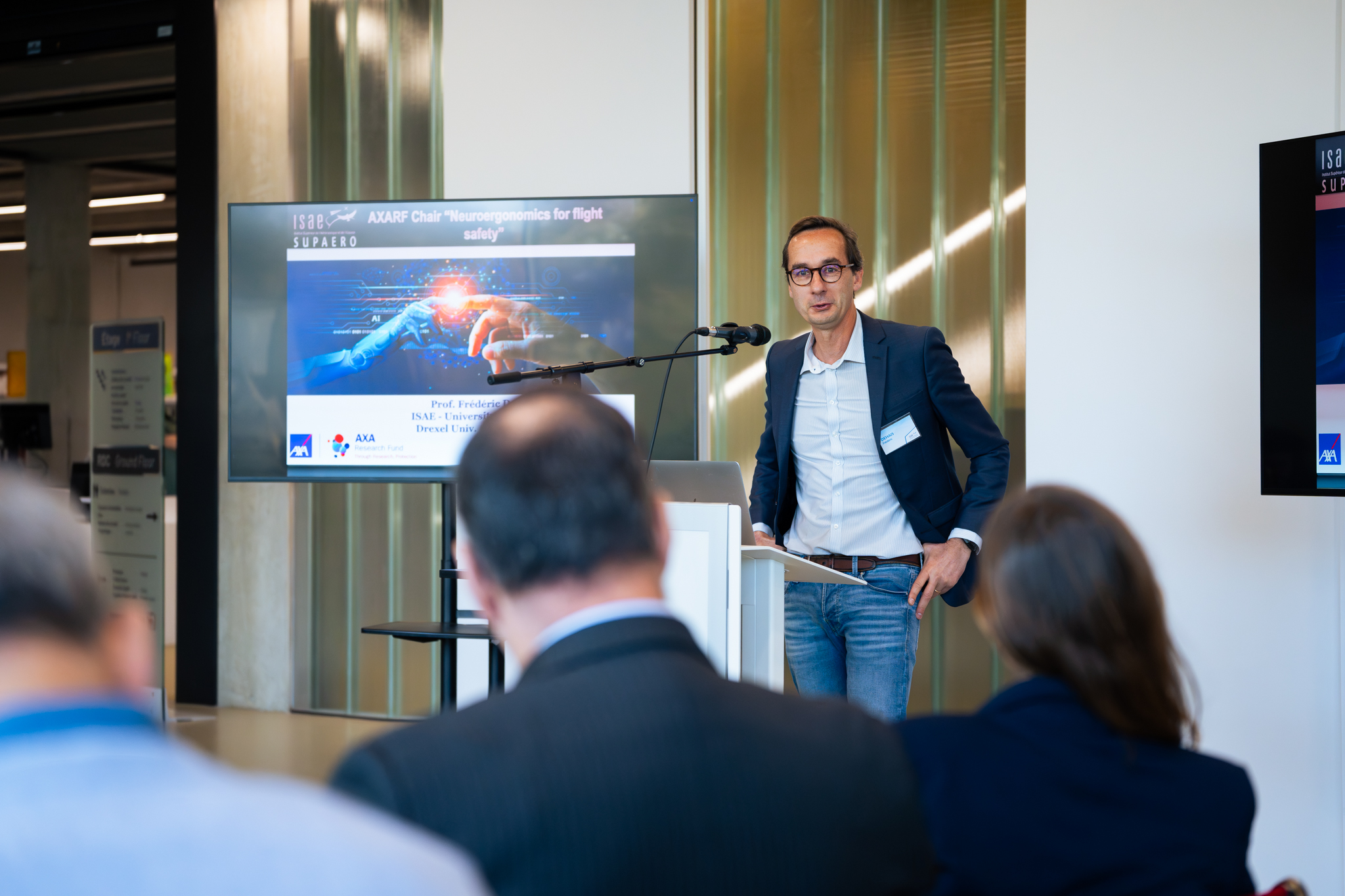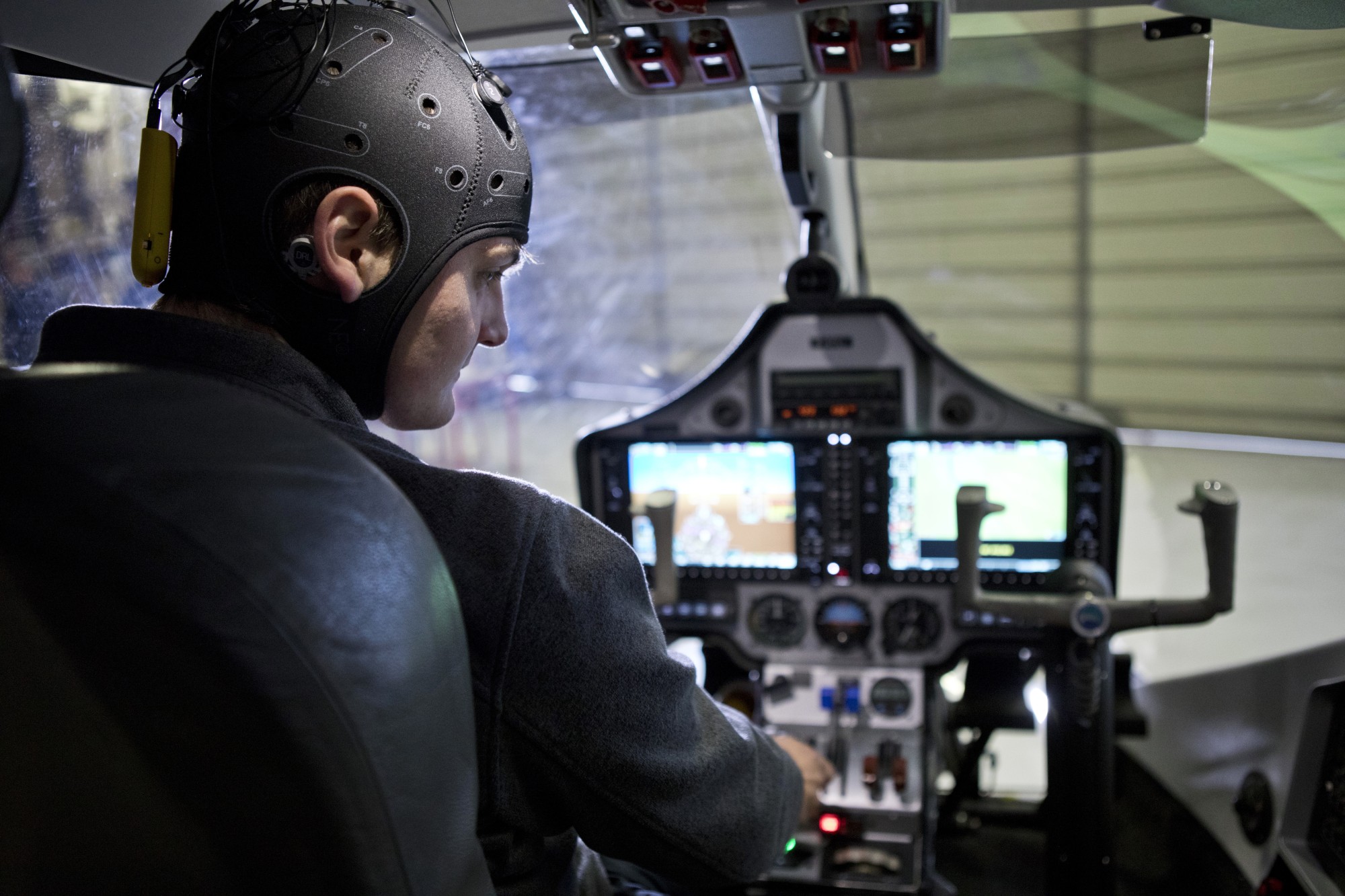On November 29th, 2024, the AXA - ISAE-SUPAERO Chair, led by Prof. Frédéric Dehais, celebrated a decade of groundbreaking research in neuroergonomics. With a focus on aviation safety, the chair has significantly advanced our understanding of the brain's function under stress, leading to the development of applications that can benefit operators of complex systems. Moreover, it has paved the way for potential clinical applications.
The 10th-anniversary celebration brought together representatives from ISAE SUPAERO, ISAE-SUPAERO Foundation, AXA XL aviation branch, and the AXA Research Fund, along with industry players. The event featured impressive presentations by the research team and partners, along with practical demonstrations around brain-machine interfaces.

Spin-off: New personalized training for pilots
A notable outcome of this research is the establishment of Hinfact in 2017, emerging from the Neuroergonomics Laboratory of ISAE-Supaero. Leveraging expertise in neuroscience, the latest AI technologies, and the study of pilot behavior and performance, Hinfact aims to enhance the well-being and performance of complex system operators, particularly pilots.
The company, led by former Chair student Thomas Beissiere, now comprises 35 engineers and data scientists. They offer personalized adaptive training programs for pilots, redefining training design, implementation, and monitoring. These evidence-based trainings are available in 25 training centers globally and are utilized by major airlines.
Technology transfer: from cockpit to patient bedside
Furthermore, the research has facilitated the transfer of knowledge from the cockpit to the hospital. Professor Stein Silva, a critical care physician at the Toulouse University Hospital, is leveraging neuroscientific knowledge acquired through the AXA Chair to develop techniques for better assessing the consciousness levels of coma patients, with the goal of applying these techniques at patients' bedsides.
Prof. Frédéric Dehais' leadership in neuroergonomics has made significant strides in advancing this emerging field, with implications spanning from work performance to overall well-being and generating groundbreaking real-world applications for flight safety and beyond, with significant prospects for clinical application.
This cutting-edge research is emblematic of the type of science supported and developed by the AXA Research Fund: innovative, open, multidisciplinary scientific research with tangible impacts on both the academic world and societal progress through risk reduction.
Image courtesy of @Louis Derigon & @ISAE-SUPARO



